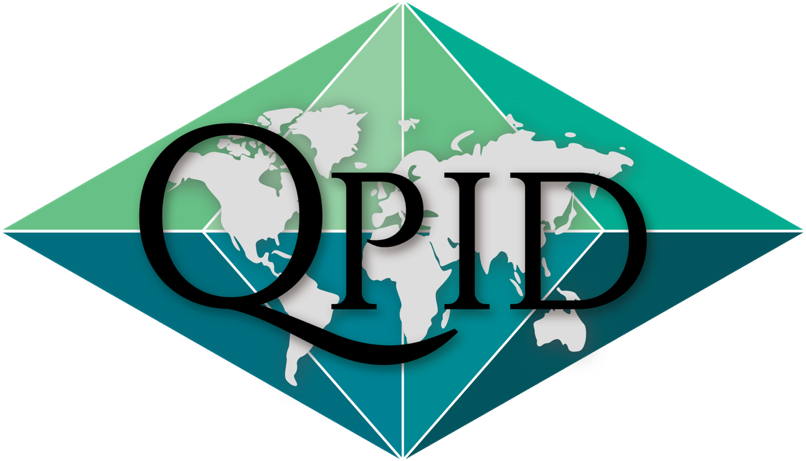
Workshops
QPID provides free, interactive workshops for Kingston elementary schools and high schools to promote critical thinking and discussion surrounding local and global development. Our workshop topics range from discovering development, and fundamental concepts of sustainability, to climate change and building a water filter!
A few of our previous workshops include:
-
Food insecurity refers to the condition where individuals or households do not have consistent access to sufficient, safe, and nutritious food. This can result from various factors such as economic instability, inadequate food distribution, or natural disasters. Food insecurity can lead to negative health outcomes, including malnutrition and chronic diseases. It often affects vulnerable populations, including low-income families, children, and the elderly. Addressing food insecurity requires a multifaceted approach, including improving economic opportunities, enhancing food distribution systems, and providing targeted support to those in need.
Solutions may look like:
Increasing Economic Opportunities
Enhancing Food Assistance Programs
Improving Food Distribution
Supporting Community Initiatives
Advocating for Policy Changes
-
The triple burden of women refers to the simultaneous and often overwhelming responsibilities that women face in various spheres of life. It includes paid work, unpaid domestic labor, and caregiving responsibilities, which can strain their time and resources. Women often juggle these roles, leading to increased stress and reduced opportunities for personal and professional advancement. This burden disproportionately affects women, particularly those in low-income or marginalized communities. Addressing the triple burden involves recognizing and redistributing these responsibilities more equitably and supporting policies that alleviate these pressures.
Solutions may look like:
Promoting Work-Life Balance
Supporting Affordable Childcare
Encouraging Shared Domestic Responsibilities
Investing in Social Services
Advocating for Gender Equality Policies
-
Climate refugees are individuals who are forced to leave their homes or countries due to severe environmental changes caused by climate change. These changes can include extreme weather events, rising sea levels, prolonged droughts, or other conditions that make their living environment uninhabitable. Unlike traditional refugees, who flee from conflict or persecution, climate refugees relocate primarily because their homes have become unsafe or unsustainable due to environmental factors. The term underscores the growing impact of climate change on human migration patterns and the need for international responses to support displaced populations.
Solutions may look like:
Mitigating Climate Change
Enhancing Adaptation Efforts of Infrastructure
Supporting Affected Communities
Creating Legal and Policy Frameworks
Promoting Resilient Communities
-
Water and sanitation insecurity occurs when individuals lack reliable access to clean, safe drinking water and adequate sanitation facilities. This condition can lead to severe health issues, including waterborne diseases and malnutrition. Insecure access to water and sanitation often affects marginalized communities, especially in developing regions or areas experiencing conflict or environmental stress. The lack of proper sanitation can also lead to environmental contamination, further exacerbating health risks. Addressing water and sanitation insecurity requires improving infrastructure, ensuring sustainable water management, and enhancing public health education.
Solutions may look like:
Improving Infrastructure
Enhancing Water Management
Promoting Hygiene Education
Supporting Policy and Regulation
Strengthening Community Involvement
-
Vaccine insecurity refers to the lack of reliable access to vaccines, which can result from factors such as inadequate supply, distribution challenges, or economic and social barriers. This insecurity affects the ability of individuals or communities to receive essential vaccinations, leading to lower immunization rates and increased vulnerability to preventable diseases. Vaccine insecurity can arise due to logistical issues, political instability, or disparities in healthcare infrastructure. Addressing vaccine insecurity is crucial for preventing outbreaks of diseases and ensuring equitable health protection for all populations.
Solutions may look like:
Enhancing Vaccine Supply Chains
Increasing Community Funding and Resources
Improving Community Accessibility and Equity
Strengthening Healthcare Systems
Promoting Public Awareness and Education
Fostering International Cooperation
-
Agriculture insecurity refers to the instability or lack of reliability in agricultural systems that affects food production and livelihoods. This insecurity can result from various factors such as unpredictable weather patterns, soil degradation, inadequate access to resources, or economic challenges. It often leads to reduced crop yields, food shortages, and increased vulnerability of farming communities. Addressing agriculture insecurity is crucial for ensuring stable food supplies, supporting rural economies, and achieving food security.
Solutions may look like:
Adopting Sustainable Farming Practices
Investing in Technology and Innovation
Improving Access to Resources
Enhancing Risk Management
Supporting Policy and Research
If you are interested in booking a workshop please contact qpid.workshops@gmail.com
